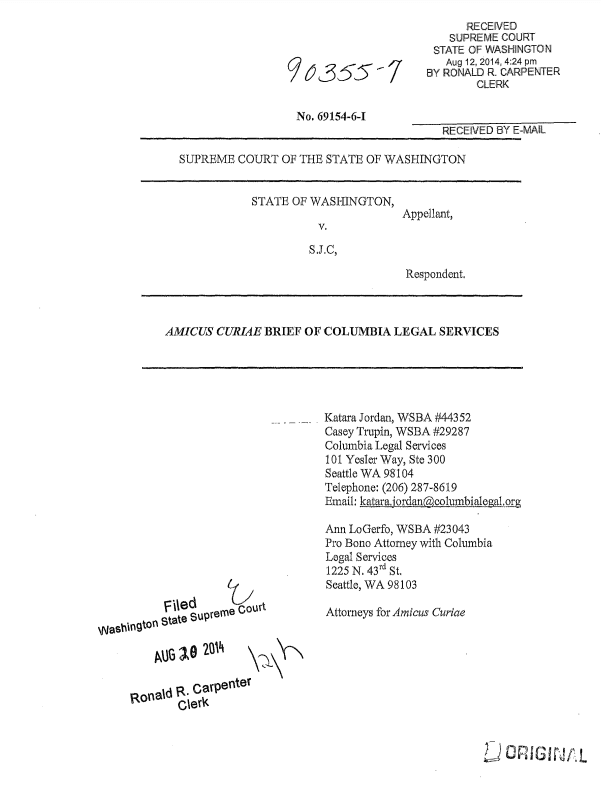
Summary of Argument
Youth of color are disproportionately represented at each point within the juvenile justice system. Thus, any decision of this Court relating to juvenile justice and its reverberating impacts on adult life should take into consideration the very real racial disparities that exist and the disproportionate harm to this population created by open juvenile records.
At the time of a youth's arrest, an electronically available public record is created. This record remains easily available whether or not the juvenile is charged with a crime. Any additional filing in court also remains open and electronically available whether or not a youth is found guilty. These records create significant impediments to rehabilitation, reintegration, and success as an adult. Youth who have an open record face barriers to employment, housing, and obtaining student loans.
These barriers are more pronounced for youth of color whose overrepresentation at every stage of the proceedings has a "cumulative and enduring effect [that] can increase the risk factors that contribute to [a youth of color's] continued involvement in the juvenile and adult criminal justice systems."
Given the difficulty of sealing a juvenile record, youth of color rarely seal them. Imposing additional requirements, such as the application of the factors set forth in Seattle Times Co. v. Ishikawa, 97 Wn.2d 30, 37-39, 640 P.2d 716 (1982), at every juvenile record sealing hearing would make the sealing process even more onerous, ensure that even fewer youth of color will move to seal their records, and exacerbate the problem of racial disparity within our society. This Court should not impose requirements in addition to those that already present substantial barriers to record sealing for former juvenile offenders.